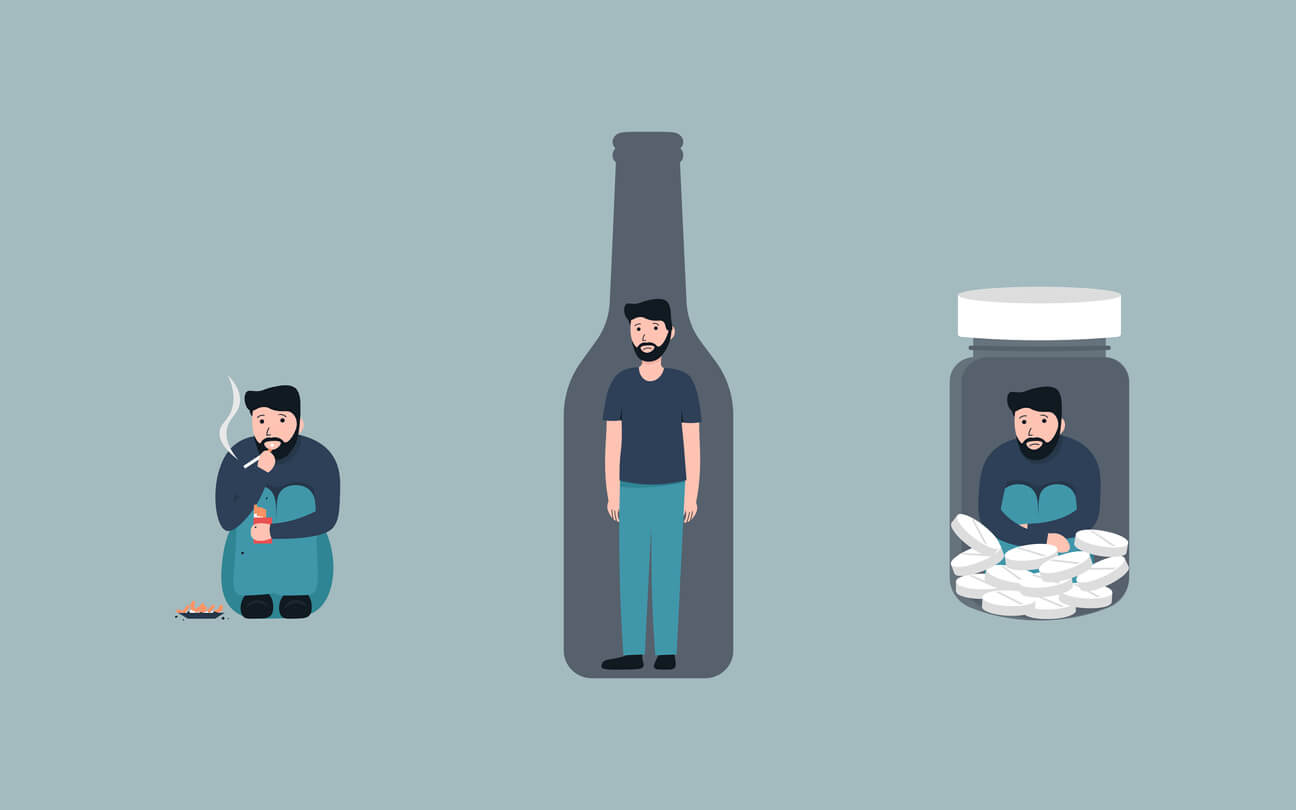Navigating the treacherous waters of substance abuse and mental health issues can be an overwhelming task for individuals and their families. However, the journey towards recovery doesn’t always necessitate residential or inpatient treatment. Intensive Outpatient Programs (IOPs) provide a highly structured, comprehensive treatment option that allows individuals to maintain their everyday responsibilities while receiving the care they need. Pursuing an IOP is an empowering choice, one fostering resilience and self-reliance as individuals consciously participate in their road to recovery. Here are several reasons why someone might choose an intensive outpatient program: 1. Flexibility and Convenience One of the primary benefits of an intensive outpatient program like the PHP treatment program is its flexibility. Unlike residential or inpatient programs that require individuals to stay at a treatment facility full-time, programs like the PHP treatment program in Tampa allow participants to attend therapy sessions and receive treatment while maintaining their daily routines and responsibilities. This flexibility is particularly beneficial for individuals who cannot commit to a residential program due to work, school, or family obligations. It allows them to receive the support they need without disrupting their lives. 2. Structured Support and Accountability Despite being outpatient-based, intensive outpatient programs offer structured treatment schedules that typically involve several hours of therapy sessions multiple times per week. This level of intensity provides participants with consistent support, guidance, and accountability as they navigate the challenges of recovery. Group therapy sessions, individual counseling, educational workshops, and skill-building exercises are often included in the program to address various aspects of substance abuse or mental health issues. 3. Continued Connection to Community and Support Systems Unlike residential programs that temporarily remove individuals from their communities, intensive outpatient programs allow participants to remain connected to their support systems, including family, friends, and community resources. This ongoing connection provides a vital source of encouragement, understanding, and social support throughout the recovery process, helping individuals feel less isolated and more motivated to stay engaged in treatment. 4. The Transition from Higher Levels of Care Intensive outpatient programs serve as a transitional step for individuals who have completed a higher level of care, such as residential treatment or partial hospitalization programs (PHPs), but still require structured support as they reintegrate into their communities. The IOP program in Tampa offers a gradual transition from more intensive treatment settings to less restrictive environments while providing ongoing therapeutic support and monitoring to prevent relapse and promote long-term recovery. 5. Customized Treatment Plans Intensive outpatient programs tailor treatment plans to meet each participant’s unique needs and goals. Through comprehensive assessments and individualized care planning, program staff identify participants’ specific challenges, strengths, and preferences and design treatment interventions accordingly. This personalized approach ensures that individuals receive the most appropriate and effective interventions to support their recovery. 6. Focus on Relapse Prevention and Skill Building Intensive outpatient programs place a strong emphasis on relapse prevention strategies and skill-building techniques to help individuals develop coping skills, stress management techniques, and healthy behaviors that support long-term sobriety and mental wellness. Participants learn practical tools and strategies to navigate triggers, cravings, and high-risk situations, empowering them to make healthier choices and maintain their recovery outside of treatment. 7. Affordability and Accessibility Compared to residential or inpatient programs, intensive outpatient programs are more affordable and accessible for many individuals. Since participants do not require round-the-clock supervision or accommodation, the costs associated with housing, meals, and facility fees are significantly reduced. Additionally, IOPs may accept various forms of insurance coverage or offer sliding-scale fees to make treatment more affordable for individuals with financial constraints. 8. Support for Dual Diagnosis or Co-Occurring Disorders Intensive outpatient programs often specialize in treating individuals with co-occurring substance use disorders and mental health conditions, also known as dual diagnosis. These programs offer integrated care that addresses both substance abuse and underlying mental health issues simultaneously. By receiving comprehensive treatment for co-occurring disorders, individuals can achieve better outcomes and reduce the risk of relapse associated with untreated psychiatric symptoms. 9. Continued Access to Professional Support and Guidance Intensive outpatient programs at a dual diagnosis treatment center in Tampa, FL provide ongoing access to professional support and guidance from licensed therapists, counselors, and addiction specialists. Participants have regular opportunities to discuss their progress, address challenges, and receive feedback in a safe and nonjudgmental environment. This consistent support fosters a sense of accountability, empowerment, and motivation to make positive changes and overcome obstacles on the road to recovery. 10. Integration of Holistic and Alternative Therapies Many intensive outpatient programs offer a holistic approach to treatment that incorporates complementary and alternative therapies alongside traditional evidence-based interventions. These holistic modalities may include mindfulness practices, meditation, yoga, acupuncture, nutritional counseling, art therapy, and adventure therapy. By addressing wellness’s physical, emotional, and spiritual dimensions, holistic therapies complement traditional treatment approaches and promote overall well-being, resilience, and recovery. Final Thoughts The journey towards recovery is riddled with challenges, requiring courage, determination, and resilience. Choosing an Intensive Outpatient Program (IOP) can be instrumental in this transformative journey. It allows individuals to receive necessary care while participating in their routine responsibilities, encompassing personal, occupational, or academic realms. The balance maintained between therapy and day-to-day activities encourages independence and self-efficacy.
Why is Alcohol Detox Essential: Unveiling the Truth Behind Alcoholism and Recovery
Welcome, and thanks for joining us here at Soar Sober. Our journey to recovery is paved with strength, courage, and unwavering dedication. Today, let’s discuss a crucial step in this journey – Alcohol Detoxification. What is Alcohol Detoxification? Alcohol detoxification is an essential process where an individual lets alcohol fully leave their system. It’s not as simple as just “stopping drinking” – it’s a medically supervised regimen to treat acute alcohol withdrawal. It clears the body from toxic alcohol effects, setting the foundation of a clean slate for recovery. Unveiling the Truth Behind Alcoholism Alcoholism, or alcohol dependence, is an illness characterized by the habitual intake of alcohol. It’s an all-consuming disorder that can affect every aspect of an individual’s life. The consequences are as psychological as they are physiological – from impacting relationships and productivity to causing severe health deterioration. Alcohol dependence is so deep-rooted in some individuals that they experience withdrawal symptoms when they attempt to quit. These can include shaking, confusion, hallucinations, and even seizures in severe cases. Experience at a Detox Center in Washington For many, walking into the unfamiliar territory of a detox center can be daunting. But it’s not as scary as it sounds. At our center, Soar Sober Alcohol Detox in Washington, we strive to offer a supportive, understanding, and safe environment to aid your recovery. We don’t just detoxify your body between group therapy sessions, recreational activities, and medical monitoring. We provide you with the tools and support needed to detoxify your life from the influence of alcohol. The Detoxification Process Detoxification is a structured process. Starting with medical assessments to understand your needs and challenges, we curate a health plan ensuring your safety and comfort during withdrawals. Our professional team is there to guide you, providing you with the necessary medical supervision during the crucial first few days of Detox. From addressing acute withdrawal symptoms to encouraging healthier habits, professional help is instrumental in the recovery journey. Benefits of Alcohol Detoxification The road to sobriety begins with detoxification. The benefits gained from alcohol detox extend beyond physical health: Mental clarity: You’ll find your thoughts are clearer and brighter sans the alcohol fog. Emotional stability: The mood swings and irritability associated with alcohol wear off, leaving you with better control of your emotions. Improved physical health: With the gradual disappearance of alcohol-related toxins, your body begins to heal, increasing your energy levels and improving your overall health. Better relationships: As your grasp on sobriety strengthens, you can start to mend relationships affected by your alcoholism. Healthier lifestyle choices: Sober living makes room for healthier lifestyle changes – better sleep, balanced diets, and regular exercise. Successful Stories from Alcohol Treatment Our work at the Soar Sober Alcohol Detox isn’t just about medical treatments. It’s about the people who push through the hardest days of their lives and emerge stronger than before. Our walls echo the countless stories of triumph over alcohol addiction, each unique and inspiring. These success stories are invaluable, offering hope and showing that recovery while challenging, is certainly not impossible. Rehabilitation and Aftercare Although a significant first step, Detox isn’t the end of the journey. Post-detox, individuals enter the phase of rehabilitation. This step entails therapy, counseling, and continuous support, fortifying the resolve to stay sober. Continued support is vital for preventing relapse. Here at Soar Sober, we don’t send you on your way after Detox and rehab. We’ve designed an aftercare program, providing the needed support and guidance even after you transition back to daily life. Conclusion Recovery is a personal process, and we believe in supporting you every step of the way. Remember, understanding the need for alcohol detoxification and seeking professional help is the first step to a healthier, happier you. So, as the team at Soar Sober, we encourage you to take the leap and start your journey toward recovery. Soar high and above your addiction. Sober living is a rewarding journey, and you deserve to experience it.



